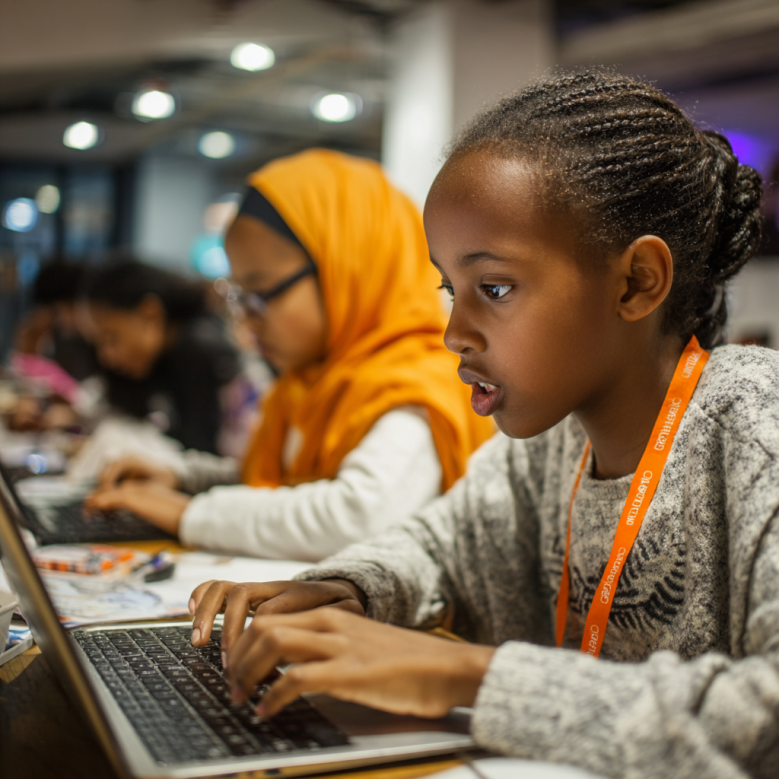I still remember the first time I tried to hire a woman for a blockchain engineering role. It was 2018, and I had three roles open at a DeFi startup in Singapore. Out of nearly 200 applicants, only four were women. Four. And most of them weren’t even from technical backgrounds. It wasn’t just disheartening—it was a red flag. We were building the future of finance, and yet, half the world’s population was missing from the room. That’s why initiatives like Unicef x Bitget give me hope—they’re not just supporting blockchain adoption, but also pushing for greater inclusion in the space.
So when I saw the headline that Unicef x Bitget are training 300k girls in Web3, I nearly choked on my morning coffee. Finally. Someone’s doing something.
Why This Matters More Than Ever
Let’s be honest—the Web3 space still has a diversity problem. Whether you’re recruiting smart contract engineers or growth leads for a DAO, you’ll see the same trend: a sea of male candidates, often from the same backgrounds, with the same networks.
That’s not innovation. That’s stagnation.
Unicef x Bitget’s initiative aims to break that cycle. By equipping 300,000 girls—yes, three hundred thousand—with foundational Web3 skills, we’re looking at a whole new talent pool. Not tomorrow. Today.
They’re not just doing a couple of webinars and calling it a day. This is an end-to-end programme: blockchain literacy, wallet usage, smart contract basics, and even career path mentoring. It’s happening across underserved communities, especially in South Asia and parts of Africa, where girls are too often shut out of tech entirely.
More Than Feel-Good PR
Some might roll their eyes. “Another corporate CSR campaign.” But here’s where it gets interesting. Bitget has skin in the game. They’re not just donating; they’re embedding this into their long-term ecosystem strategy. Graduates from the programme are being funnelled into paid internships, hackathons, and mentorship programmes with real industry pros.
I’ve seen too many initiatives die at the awareness stage. You can’t just teach someone what blockchain is and expect them to land a job. You need support. Confidence. A network.
When I used to mentor junior talent entering crypto, the biggest hurdle wasn’t the tech—it was belief. Especially for women. Especially for young women with zero industry exposure.
This programme nails that.
What This Means for Hiring in Web3
From a recruiter’s lens, here’s what I’m excited about:
- Talent from non-traditional markets. We’re talking Nairobi, Dhaka, Medellin—not just Silicon Valley or Berlin.
- Fresh perspectives. These girls aren’t burdened with old Web2 mentalities. They come in thinking decentralised-first.
- Expanded pipelines. With a standardised curriculum, it’s easier to benchmark junior talent from emerging markets.
It also sends a message to hiring managers: if you’re still complaining about the lack of diverse candidates, you’re not looking in the right places.
Web3 Isn’t Just for the Privileged Few
One of the things that’s always bothered me is how Web3—despite all its ideals—often ends up replicating the same inequalities as Web2. Want proof? Look at the demographics of the last ETHGlobal hackathon.
But Unicef x Bitget are flipping that on its head.
By going straight to the grassroots, they’re not waiting for top universities to produce candidates. They’re building them. From scratch. With tools, community, and long-term access to opportunity.
In my view, this is where real change starts. Not with another protocol launch. Not with another VC fund. But with a 16-year-old girl in Colombo learning how to deploy her first smart contract—and believing that she belongs in this world.
What Needs to Happen Next
Honestly, 300k is huge. But it’s a start, not a finish line.
I’d love to see:
- More companies follow Bitget’s lead—especially exchanges and L1s.
- Hiring managers set diversity KPIs in early-stage recruitment.
- DAOs offer micro-grants and bounties tailored to first-time contributors from this talent pool.
And if you’re building a Web3 team right now? Start asking the hard questions: Who are we excluding? Where else could we be looking?
Because the next unicorn protocol might just come from a girl trained through this very programme.
The partnership between Unicef x Bitget isn’t just a headline. It’s a shift. A ripple in the talent ecosystem that, if we nurture it, could grow into a wave.
For those of us in crypto recruitment, this is the moment to widen our lens. To stop waiting for the same CVs to come in. And to start actively supporting initiatives that create new ones.
Because this isn’t charity. It’s strategy.



